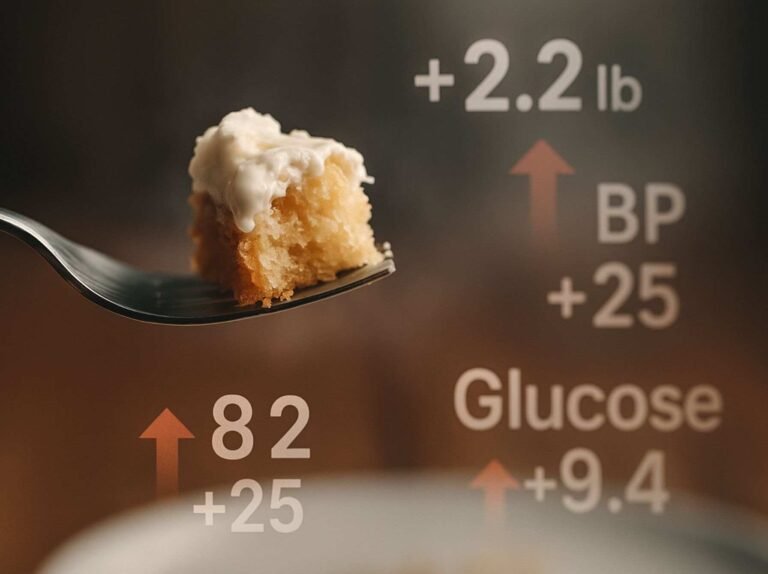Understanding Chronic Inflammation and Diet 🌱
Chronic inflammation is a hidden force in the body that can fuel serious health issues, such as arthritis, heart disease, and diabetes. It’s your body’s long-term response to harmful stimuli, like a poor diet or stress, and it doesn’t just go away on its own. While inflammation is meant to protect the body, when it’s out of control, it can cause ongoing damage. The good news? Your diet can either trigger or reduce chronic inflammation. By choosing the right foods, you can fight inflammation, improve your joint health, boost your energy, and feel better overall. In this article, I’ll walk you through how chronic inflammation works, how diet plays a role, and what changes you can make to take control of your health.
Section 1: What is Chronic Inflammation? 🔬
Inflammation happens when your body’s immune system reacts to something harmful—think swelling from an injury or a fever fighting an infection. Acute inflammation is temporary, but when inflammation sticks around for weeks, months, or even years, it becomes chronic inflammation. Chronic inflammation isn’t always obvious, but it can contribute to many health problems, including:
- Arthritis – Pain and stiffness in the joints.
- Heart Disease – Inflammation can contribute to blocked arteries and higher heart disease risk.
- Diabetes – Chronic inflammation can worsen insulin resistance, causing blood sugar issues.
- Autoimmune Diseases – Inflammation can play a part in conditions like lupus or Crohn’s disease, where the immune system attacks healthy tissues.
Understanding chronic inflammation is key to knowing how to reduce it. You can make your body’s defenses work in your favor by managing what you eat.
Section 2: The Role of Diet in Chronic Inflammation 🍔
What you eat can either fuel or fight inflammation. Processed foods, sugars, and unhealthy fats can all increase inflammation in the body, while foods packed with antioxidants and healthy fats can help reduce it. The connection between your diet and inflammation is so important because your gut microbiome—the bacteria and other microorganisms living in your digestive system—plays a big role in regulating inflammation. A diet that’s rich in processed foods can disturb this balance and make inflammation worse.
Section 3: Inflammatory Foods That Trigger Chronic Inflammation 🍟
Some of the most common foods that can trigger inflammation include:
- Refined Carbohydrates: White bread, pasta, and sugary snacks like cookies and cakes can cause spikes in your blood sugar levels, leading to inflammation.
- Fried Foods and Trans Fats: Fried foods and unhealthy oils (like vegetable oil or margarine) are loaded with fats that increase inflammation in the body. Think potato chips, fast food, and baked goods.
- Sugar and High-Fructose Corn Syrup: High sugar intake is one of the main drivers of chronic inflammation. This includes sugary drinks, candy, and even processed foods that hide added sugar.
- Red and Processed Meats: Red meat like beef or lamb, and processed meats like bacon and sausages, contain compounds that promote inflammation in the body.
- Dairy Products: Dairy can be inflammatory for some people, especially those who are lactose intolerant or sensitive to casein, a protein found in milk.
Section 4: Anti-Inflammatory Foods to Include in Your Diet 🥗
There are plenty of foods that can help reduce inflammation and support your overall health. Here are some of the best choices:
- Fruits and Vegetables: Rich in vitamins, antioxidants, and fiber, fruits like berries, apples, and oranges are packed with anti-inflammatory properties. Vegetables like spinach, kale, and broccoli work wonders too.
- Healthy Fats: Omega-3 fatty acids found in fatty fish (like salmon and mackerel) and plant-based sources like flaxseeds, chia seeds, and walnuts are crucial for fighting inflammation.
- Whole Grains: Unlike refined grains, whole grains like brown rice, quinoa, and oats are high in fiber, which helps control blood sugar and inflammation.
- Nuts and Seeds: Almonds, walnuts, chia seeds, and flaxseeds provide healthy fats and antioxidants that reduce inflammation.
- Herbs and Spices: Turmeric, ginger, and garlic are natural anti-inflammatories. They add flavor to meals while helping to reduce inflammation in the body.
Section 5: The Mediterranean Diet as an Anti-Inflammatory Model 🌍
The Mediterranean diet is one of the best examples of an anti-inflammatory diet. It focuses on whole foods like fruits, vegetables, healthy fats, and lean proteins. People who follow this diet often have lower inflammation levels in their blood and a reduced risk of chronic diseases like heart disease and diabetes. Compared to the typical Western diet, which is often high in refined sugars, processed meats, and unhealthy fats, the Mediterranean diet’s balance of nutritious foods offers powerful anti-inflammatory effects.
Section 6: Lifestyle Changes to Complement Your Anti-Inflammatory Diet 🏋️♀️
It’s not just about the food you eat—your lifestyle plays a huge role in managing inflammation. To complement your anti-inflammatory diet:
- Exercise: Regular physical activity can lower inflammation markers in your body. Aim for consistent, moderate exercise to help reduce inflammation.
- Stress Management: Chronic stress can fuel inflammation. Activities like meditation, yoga, or simply taking time to relax can help lower stress and inflammation levels.
- Sleep: Poor sleep can increase inflammation. Aim for 7-9 hours of good-quality sleep each night to allow your body to heal and repair itself.
Conclusion: How to Take Control of Chronic Inflammation Through Diet 🌟
Taking control of chronic inflammation starts with understanding how diet can help. By avoiding inflammatory foods like refined sugars, fried items, and red meat, and replacing them with anti-inflammatory foods such as fruits, vegetables, healthy fats, and whole grains, you can significantly reduce inflammation and improve your health.
Small changes can make a big difference. The key is to start with one food choice at a time, gradually making adjustments until you feel the benefits of reduced inflammation and improved energy. Remember: reducing inflammation is a journey, but it’s a journey worth taking.
Call to Action ✨
Are you ready to take control of chronic inflammation? Start by focusing on anti-inflammatory foods and eliminating the worst offenders—refined sugars, fried foods, and processed meats. By doing so, you can reduce inflammation, improve your health, and feel better every day. Commit to the small changes that lead to big results and begin your journey toward a healthier, inflammation-free life today!
See you! 😊
Warmly,
Paul



